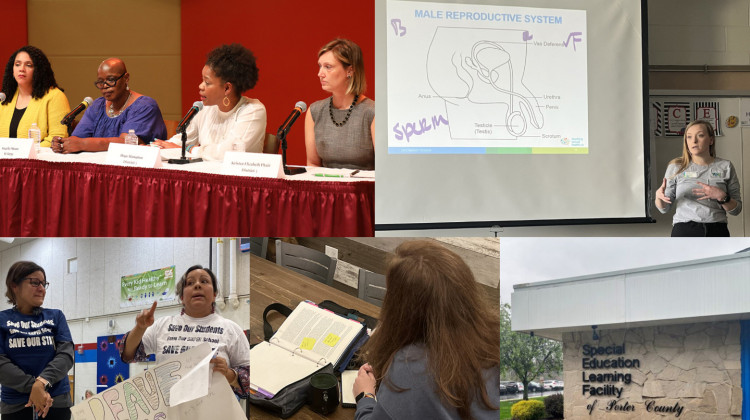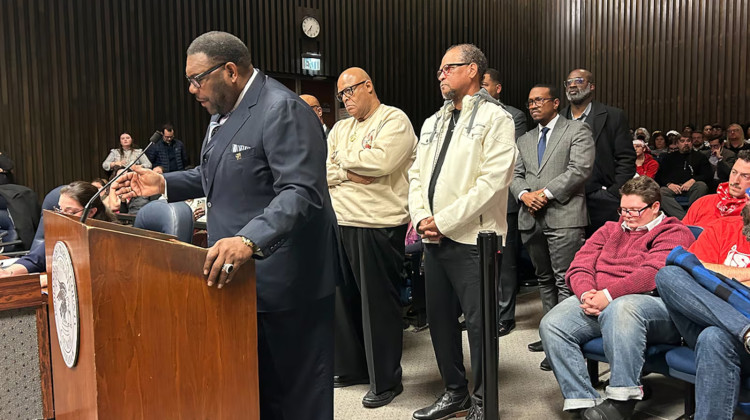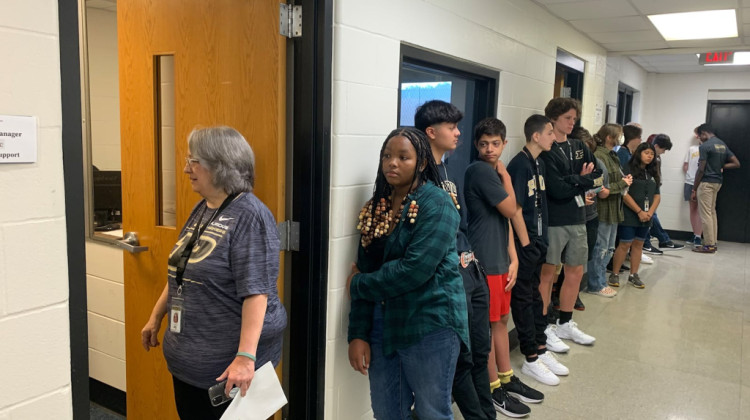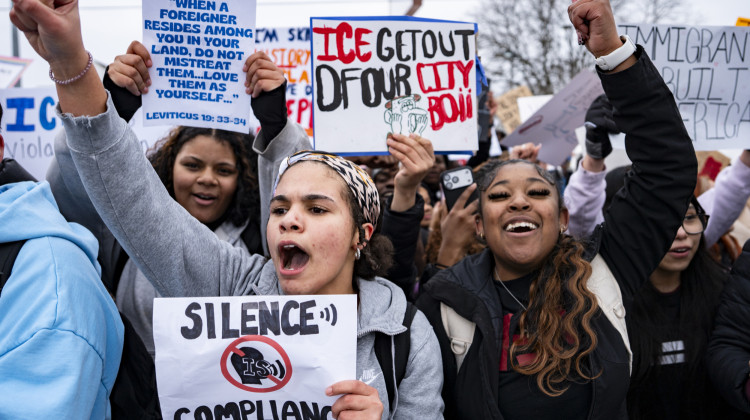
In 2022, WFYI’s education reporters covered stories including the state’s shortage of special education teachers and paraprofessionals, and Indianapolis Public Schools’ plans to reconfigure the district.
Eric Weddle, Lee V. Gaines, Elizabeth Gabriel for WFYIThis year, WFYI reporters tackled tough education stories – from teacher and classroom aide shortages, to major changes coming to the Indianapolis Public Schools district.
Here were the top WFYI education stories of 2022:
Special education teacher, aide shortage
It was an "all hands on deck" in April as Indiana officials ended the use of emergency permits for special education teachers. It was a decision caused by the state's years-long violation of allowing under-qualified educators to teach students with disabilities. A short-term training program was set up to help current educators earn a permit, but schools continued to struggle to hire enough fully licensed special education teachers. We reported how the Special Education Learning Facility, known as SELF school, located in Valparaiso, was so understaffed parents said it’s unsafe.
We also collaborated with NPR to explain how the shortage impacted students, like a 12-year-old who spent an entire semester without an assigned teacher. Dylan Peers McCoy reported on how Hawaii may have found a solution for too few special education teachers.
Our reporting did not stick to teachers — we found that school districts could not hire teaching aides, or paraprofessionals, because McDonald's and other jobs with far easier responsibilities paid more.
Fear of lawsuits keep parents quiet
A WFYI investigation found schools frequently request non-disclosure agreements as a condition to settle disputes with parents over their children’s education. Parents told us they then live in fear that a school district may take legal action against them for a perceived violation of the agreement. These unique settlements between parents and schools are used to resolve special education due process requests — like a parent believing their child isn’t getting enough classroom help in reading.
Bipartisan legislation sought to change the way these disputes are resolved and place the burden on schools — not parents. But school district superintendents lobbied heavily against the bill and was killed in the Senate by a shocking 0-50 vote.
Indianapolis Public Schools’ big overhaul
IPS leaders called an extensive plan intended to improve academics and offerings Rebuilding Stronger — the overhaul will transform the district as it closes six school buildings, changes grade configurations in elementary schools and establishes eight middle schools. But many in the community pushed back. Reporter Elizabeth Gabriel visited a school that will be consolidated and heard from angry families who feel betrayed by the district. Other community members say the proposal does not do enough to meet the needs of the city’s Black and Brown students.
Nonetheless, the school board unanimously approved it. To help explain this complex plan, we created a database to show how each school will be impacted.
How will the district pay for this? The school board approved a $410 million referendum on the May 2023 ballot to pay for a new school building and dozens of facility improvements. Days before year’s end, the school board delayed a planned vote to place a $413.6 million property-tax referendum on the same ballot after charter schools’ leaders demanded to be included in it and advocacy groups withheld their support.
This story will continue to unfold in 2023.
Conservative politics heat up suburban school board races
Suburban school board races were anything but sleepy in the November election. Reporter Lee V. Gaines reported on how and why conservative candidates in Carmel and across Indiana campaigned on so-called parental rights platforms — a combination of concerns over mask mandates and the belief that schools are teaching students critical race theory.
Some of these candidates won seats in multiple Hamilton County school board races. This week, Gaines reported a follow-up story for NPR’s Here & Now about a conservative board member who won a seat on the Carmel Clay School Board.
Did PAC money impact Marion County school board races?
In November, 47 candidates were on ballots for 29 positions at school boards across Marion County. In order to provide information to the public on these races, WFYI collaborated with Chalkbeat Indiana on a voter guide for the 10 school districts. We also held a public forum for the candidates running for Indianapolis Public School Board.
We also dug into why fewer people were running for the IPS school board than in the past decade. WFYI and Chalkbeat reporters looked at how nearly $600,000 spent in the last election by political action committees may be scaring away candidates without deep pockets.
Sex education in school
Sex education isn’t mandated in Indiana schools. But when schools choose to teach it, there can be an unexpected response. Reporter Lee V. Gaines explained how political pressure caused schools to stop contracting with a local nonprofit that explains puberty and the reproductive systems to students. Gaines also explained the story of how a former teacher who provides private sex education workshops to both children and adults was falsely labeled as a groomer and pedophile in viral social media posts.
Contact WFYI education editor Eric Weddle at eweddle@wfyi.org or call (317) 614-0470. Follow on Twitter: @ericweddle.
 DONATE
DONATE







 Support WFYI. We can't do it without you.
Support WFYI. We can't do it without you.